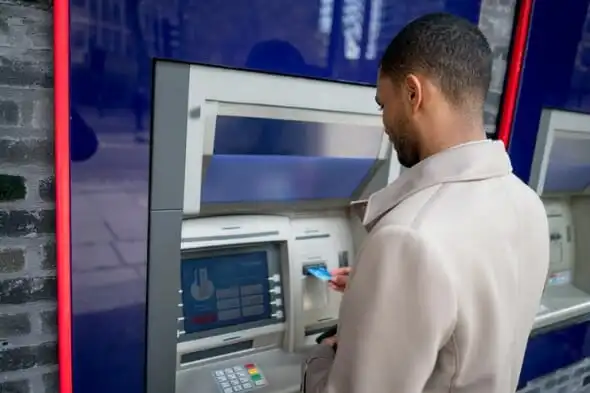Having a savings account is incredibly important to your financial health. It keeps your money safe and grows your balance according to set interest rates. You can link your savings account and checking account for automatic transfers and overdraft protection. But there’s also another type of account that works like a hybrid of savings and checking accounts. This is the money market account, which earns at favorable interest rates and can include an ATM card.
A financial advisor can also provide insights on the different types of bank accounts you can use to achieve your savings goals.
What Is a Savings Account?
A savings account is a bank account that takes advantage of interest rates to boost your savings. The interest rate depends on the bank. Often, you can earn higher rates with higher balances or by linking to a checking account with the same bank.
The best savings accounts are those with high interest rates and low to no fees. After all, you shouldn’t have to pay to save your money, especially for emergencies. Fees can add up and put a dent in your savings if you’re not careful. Some banks do charge a monthly fee on their savings accounts, although you can often get these waived by meeting a minimum balance.
Savings accounts often have a limited amount of transactions per statement cycle, usually six. This includes transfers and withdrawals.
What Is a Money Market Account?
As we mentioned above, a money market account is best described as a mix between a savings account and a checking account. Money market accounts earn interest like a savings account, although often at much higher rates than a savings account. This will depend on what a specific bank can offer, though.
In addition to earning interest, money market accounts also usually include check-writing abilities and an ATM card. This provides much easier access to your money than with a savings account. Not all MMAs include these features. Sometimes you have to request the card or checks.
How Money Market Accounts and Savings Accounts Work

The main difference between a savings account and a money market account is the access you have to your funds. This is noted in money market accounts’ inclusion of an ATM card. While you can often access a savings account at an ATM through your checking account’s debit card, the savings account itself does not have its own card. You cannot typically write checks connected to a savings account, either.
Another big difference is in the rates. MMAs often earn at higher interest rates than savings accounts. Banks often bill their money market accounts as “high-yield” accounts because their rates perform so well. This may not be true for every bank, however. Money market accounts also often earn according to account balances, typically with higher balances earning at better rates.
Finally, money market accounts may also carry higher minimum deposit requirements than savings accounts. This is not always the case, but you should check this amount before going to open an account. You don’t want to be set to open an account only to find that it requires at least $10,000 to open. Not to worry though! Not all banks require high minimums, or minimums at all! Discover Bank and PNC Bank offer money market accounts with no minimum opening deposit.
Money Market Account vs. Savings Account: Common Examples
A money market account can be a good choice if you’re saving for a goal you’ll need to reach in the next year or two, like a home down payment or a big vacation. It gives you higher interest rates than many regular savings accounts and easy access through checks or an ATM card. If you have a larger balance, you might also get a better rate, making a money market account even more attractive.
A savings account is often better if you want to build up an emergency fund or save for long-term goals without the temptation to spend. Since savings accounts usually don’t offer checks or direct ATM access, it’s easier to leave the money alone. They also tend to have lower minimum balance requirements, making them a good starting point for new savers.
Some people open both types of accounts to organize their money more easily. For example, you could keep emergency savings in a regular savings account and use a money market account for more flexible spending, like holiday shopping or home repairs. Having both can help you stay disciplined while still giving you access when you really need it.
The best account for you depends on how you plan to use the money and how much access you want. If you need flexibility, a money market account may work better. If you want to keep your savings safe and untouched, a traditional savings account could be the smarter choice.
Money Market Account vs. Savings Account: Which Is Better?
So which is better? Money market accounts seem to offer the best mix of features with typically higher interest rates and more flexibility. While you may want to replace having both a checking account and a savings account in favor of having a single money market account, you may find some issues there. Money market accounts’ ATM cards and check-writing abilities are convenient, but they may not allow you to save as effectively as with a standard savings account. To be sure, those perks can sometimes make it too easy to spend the money you’re looking to save.
If you know you’ll be tempted to spend more often with a money market account’s ATM card or checks, you may want to keep a savings account open as well. At least with your savings account, you won’t have the ease of an ATM card.
Bottom Line

Your decision on what bank account to use may seem relatively small in the grand scheme of things. However, this choice can have a profound effect on your finances over the long term. This is especially true for accounts you’ll save with, like money market and savings accounts. Consistently keeping your money in accounts that feature strong interest rates can play a large role down the road.
Tips for Choosing the Right Bank Account
- Your choice of bank account can have a major effect on your long-term financial plan. A financial advisor can help you pick an account that aligns with your financial goals. SmartAsset’s free tool matches you with vetted financial advisors who serve your area, and you can have a free introductory call with your advisor matches to decide which one you feel is right for you. If you’re ready to find an advisor who can help you achieve your financial goals, get started now.
- Before opening any old bank account, you’re going to want to make sure that it’s the right account for yourself and your financial situation. For example, no one wants to pay fees but a free checking account would really benefit those with a tight budget.
- Sometimes you have to be honest with yourself about your financial habits. Perhaps you want to open a money market account for those high interest rates, but you also know you’ll want to make withdrawals. Not only will this lessen your earnings, but you could risk paying even more in extra-transaction fees. In that case, perhaps a regular savings account linked to a checking account might be better for you.
Photo credit: ©iStock.com/MachineHeadz, ©iStock.com/andresr, ©iStock.com/Gang Zhou
